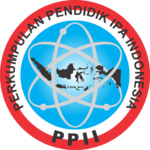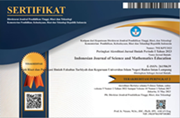Ghanaian Indigenous Conception of Real Mathematics Education in Teaching and Learning of Mathematics
Abstract
Ghana abounds in indigenous resources but little mathematics has been conceptualised. The study therefore applied the four trends of real mathematics education on five main Ghanaian indigenous materials. The design was quasi-experimental non-equivalent groups of experimental (80) and control (70) students. The experimental group was taught with the four trends and the control with the traditional approach. The researcher used teacher-made test instruments through the standard psychometric techniques and tagged them as pretest and post-test scores. Both tests were similar and given to both groups before and after the treatments. The results show that the main indigenous Ghanaian materials were signs/symbols, artefacts, instruments, tools and technologies, and signs/symbols being the most significant. These results were then applied to the teaching and learning of mathematics at the senior high school levels. The researcher therefore recommends that students should be allowed to use indigenous mathematical ideas, concepts, generalizations and thoughts processes
Keywords
Full Text:
PDFReferences
T. Meaney, C. McMurchy-Pilkington and T. Trinick, “Indigenous Students and the Learning of Mathematics”, Research in Mathematics Education in Australasia 2008–2011 pp 67-87, 2012.
T.G. Bartell, K.N. Bieda, R.T. Putnam, K. Bradfield and H. Dominguez (Eds.), Indigenous Knowledge Provides an Elegant Way to Teach the Foundations of Mathematics. Proceedings of the 37th annual meeting of the North American Chapter of the International Group for the Psychology of Mathematics Education. East Lansing, MI: Michigan State University, 2015.
P.C. Yong, Y.K. Jiar and N.A.A. Zanzali, “Mathematics Remediation for Indigenous Students With Learning Difficulties: Does It Work?”.US-China Education Review A, 1022-1033, 2012.
YuMi Deadly Centre, Accelerated Indigenous Mathematics, Commonwealth of Australia, YuMi Deadly Centre, Queensland University of Technology, 2014.
K. Duchscherer, S. Palmer, K. Shemrock and D. Vankoughnett, “Culture-Based School Mathematics for Reconciliation and Professional Development”.Indigenous Culture-Based School Mathematics: Project Report 287, July 2019.
R. Wemegah, “Boosting the Bolgatanga Basketry Industry: Inputs from the India-Africa Craft Design Initiative”, International Journal of Innovation and Applied Studies, 9(2), 897-905, 2014.
D. Tall, How humans learn to think mathematically, Cambridge: Cambridge University Press, 2013.
C.A. Ali, E.K. Davis and D.D. Agyei, D.D.,“Transition from Instrumental Genesis to Anthropological Theory of Didactics in the Teaching and Learning of Mathematics in Basic Schools”. In Pope, S. (Ed.). British Congress of Mathematics Education (pp.30- 34),University of Warwick, United Kingdom, March 2018.
L. S. Vygotsky, Tool and sign in the development of the child. In R. W. Rieber (ed.), The collected works of L. S. Vygotsky, Volume 6 (pp. 3-68). New York: Kluwer Academic, 1999.
C.A. Ali, “Harnessing Indigenous Basketry Resources for Prenumber and Early Number Work” Journal of Education and Learning, 7(2), 210-220, June 2018.
H. Freudenthal, Didactical Phenomenology of Mathematical Structures. Dordrecht: Riedel Publishing Company, 1983.
E. Matusov, “Irreconcilable differences in Vygotsky’s and Bakhtin’s approaches to the social and the individual: an educational perspective”,Culture & Psychology,17(1), 99– 119, 2011.
M. Van den Heuvel-Panhuizen, P. Drijvers, M. DoormanandM. Van Zanten, Reflections from abroad on the Netherlands didactic tradition in mathematics education. Freudenthal Institute, Utrecht University, Utrecht, 2016.
A. Fauzan, Applying realistic mathematics education (RME) in teaching geometry in Indonesian primary schools, PhD Dissertation, University of Twente, Enschede, Netherlands, 2002.
A.J. Bishop, H. Bauersfeld, B.J. Kilpatrick, G. Leder, S. T., Krakow and G. Vergnaud. G. (eds.). Revisiting Mathematics Education: China Lectures. Dordrecht: Kluwer Academic Publishers, 2002.
E. K. Davis and S. Chaiklin, S.“A radical-local approach to bringing cultural practices into mathematics teaching in Ghanaian primary schools, exemplified in the case of measurement”. African Journal of Educational Studies in Mathematics and Sciences, 11, 2015.
H. Barnes, “The theory of Realistic Mathematics Education as a theoretical framework for teaching low attainers in mathematics”,Pythagoras 61 (1),42-57, 2005.
L.T. Anh, Applying Realistic Mathematics Education in Vietnam: Teaching middle school geometry, PhD Dissertation InstitutfürMathematikLehrstuhlfür, Didaktik der Mathematik, 2006.
M. Van den Heuvel-Panhuizenand P. Drijvers, “Realistic Mathematics Education”. In S. Lerman (Ed.), Encyclopedia of Mathematics Education, Dordrecht, Heidelberg, New York, London: Springer, 2011.
M. Turgut,“Theory of semiotic mediation in teaching and learning linear algebra: In search of a viewpoint in the use of ICT”. Ninth Congress of the European Society for Research in Mathematics Education (CERME 9), Charles University in Prague, Faculty of Education; ERME, Prague, Czech Republic.pp.2418-2424, Feb 2015.
E. K. Davis, M. E. Carr and E. Ampadu, Valuing in Mathematics Learning Amongst Ghanaian Students: What Does It Look Like Across Grade Levels? In: Clarkson P., Seah W., Pang J. (eds) Values and Valuing in Mathematics Education. ICME-13 Monographs. Springer, Cham, 2019.
W. T. Seah, Values in the mathematics classroom: Supporting cognitive and affective pedagogical ideas. Gazi Journal of Education, 1(1), 45-63, 2013.
J. W. Creswell, Research design: qualitative, quantitative, and mixed methods approach (4ed), Washington DC: SAGE Publications, Inc., 2014.
C. A. Ali, Didactical Conceptual Structures in Extending the Triad to the Tetrahedron Exemplified in the Teaching and Learning of Equations of the Circle, PhD Thesis, University of Cape Coast, unpublished 2019.
O. Viirman, The function concept and university mathematics teaching. PhD Dissertation, Karlstad University Studies, Germany, 2014.
J. Ruge and R. Hochmuth, “How do pre-service teachers experience math didactics courses at university?” In Göller, R., Biehler, R., Hochmuth, R., Rück, H.-G. (Eds.), Didactics of Mathematics in Higher Education as a Scientific Discipline – Conference Proceedings, Kassel, Germany: Universitätsbibliothek Kassel, 2017.
D. Subedi, “Explanatory Sequential Mixed Methods Design as the Third Research Community of Knowledge Claim”, American Journal of Educational Research,i 4(7), 570-577, 2016.
N. Walliman, Research methods: the basics. New York: Routledge, 2011.
H. J. Seltman, Experimental Design and Analysis, New Delhi: Sage, 2015.
T. Yu, An exploratory factor analysis and reliability analysis of the student online learning readiness instrument. Online Learning, 19(5), 120-141, 2015.
H. J. Seltman, Experimental design and analysis, New Delhi: Sage, 2015.
B. Caswell, Teaching Toward Equity in Mathematics, PhD Thesis, University of Toronto, 2011.
DOI: http://dx.doi.org/10.24042/ijsme.v4i1.7382
Refbacks
- There are currently no refbacks.
Copyright (c) 2021 Unit Riset dan Publikasi Ilmiah FTK UIN Raden Intan Lampung

This work is licensed under a Creative Commons Attribution-ShareAlike 4.0 International License.

Indonesian Journal of Science and Mathematics Education is licensed under a Creative Commons Attribution-ShareAlike 4.0 International License.



